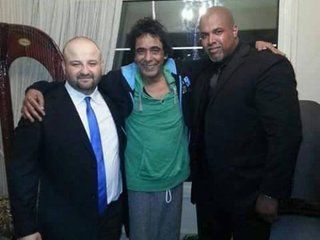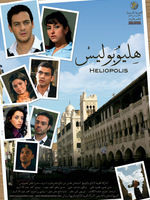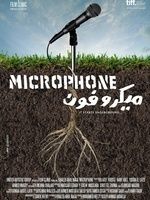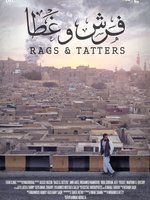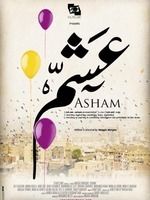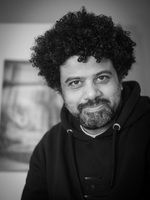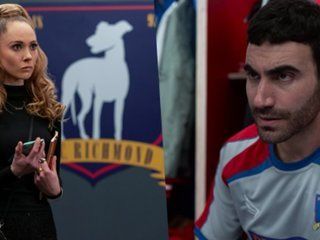Ahmed Abdallah: "Fersh wa Ghatta" is an invitation for reflection
- Interview
- 02:33 PM - 9 September 2013
- 1 photo
- By: Follow
-

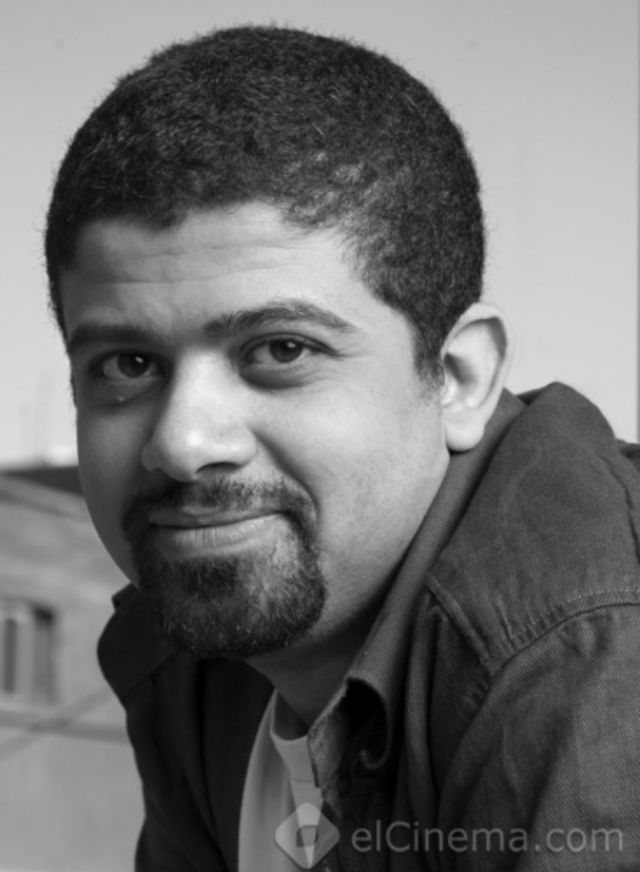
After participating in the Toronto International Film Festival (TIFF), and the announcement that his latest film had been selected in the official competition of the London Film Festival, got to talk to Egyptian indie cinema’s leading man Ahmed Abdallah. He discusses his new film “ Fersh wa Ghatta,” its selection at the Toronto and London film festivals, working with inhabitants in the Cairo neighborhood of Zabaleen, known as Garbage City, and imparts some nuggets of wisdom about independent cinema in Egypt.
You attended TIFF for “ Microphone” in 2010, but you refused in 2009. Why?
“Fersh wa Ghatta” is my second film that participated in an official capacity in the festival after “Microphone,” but it’s the third time one of my films has been selected for the festival. After “ Heliopolis” was selected, we withdrew the film, because one of the events was a celebration of the city of Haifa, but not one Palestinian film was participating. And this was the stance of most Arab directors who had films selected by the festival.
Have you decided who will attend the screening at Toronto this year?
Unfortunately it seems that most of the producers are tied up with other projects and commitments. So only the ones who’ll be able to attend the screening are myself and producer Mohamed Hefzy.
The film was shot in the Zabaleen neighborhood, and a number of other shaabi areas. Many neighborhood residents appeared in the film. Did you face any difficulties, and how was this beneficial to the film?
The experience of working with the families in the places we were shooting or people from the neighborhood is not new, we did the same thing previously in my films “Heliopolis” and “Microphone,” so I’m trying blur this line between stories written on a page and the real-life stories that come out of the neighborhoods in which we're shooting. There was no difficulty in dealing with individuals who are not professionals, and in the film we will see people from different areas of Zabaleen, like Maqabr al Imam and Al Leethy, and naturally this served the production well.
The movie is about one of the thousands of prisoners released en masse during the 2011 revolution. Does the film refer to a particular defendant in this incident?
The film doesn’t focus on the issue of the opening of prisons at that time, it focuses more on society’s treatment of those escaped prisoner, so the film begins with the escape of the prisoners, before the main character takes us on a journey across Cairo, which reveals his relationship with his community and how the community sees him.
There was no dialogue in the trailer, was this intentional?
There is very little dialogue in the film and that was not on purpose, but the film is more meditative and contemplative; it is an invitation to the audience to think about what they’re seeing, and the little dialogue is fitting of that.
Did you consider that to be risky given the tastes of Egyptian audiences?
The risk is a necessary part of independent cinema, and the film is different, and I didn’t see a problem with that, but if always feared or felt anxious about offering something different or new because of the audience’s tastes, we would never produce anything new.
You guys kept up a link while working on the film. What was the goal of the blog?
It was an attempt to document what was happening as we were shooting the film, the location we shot in, so that we couldn’t separate ourselves from what was happening around us, also we were trying to document what happens in shooting locations and our relationship to the people there.
Have you determined a release date for the film in Egypt?
The film will participate in the Toronto Film Festival with three screenings, after that it will screen at the London Film Festival in the official competition, which will be the first Egyptian film in that competition, then it’s expected that the film will participate also in one of the Arab film festivals before we release it commercially in Egypt, but it could be by the end of the year.
What about “Mashroua” which you co-founded with the producers of “Fersh wa Ghatta,” is the goal of it to support independent cinema in the face of commercial cinema?
A number of us producing “Fersh wa Ghatta” decided to found the company “ link” that we could complete the film with, but it is not a production company for commercial profit. But the idea is that the Mashroua would resemble companies like “Hasala” and “Ain Shams,” which were established in order to support specific projects. So if the idea of Mashroua succeeds it would encourage other projects, but essentially the company was founded to support “Fersh wa Ghatta.” There’s no conflict or confrontation between independent and commercial cinema, there are different tastes and each kind of cinema has its own audience that prefer it.
But a larger portion of audiences prefer commercial cinema?
This is what’s happening all over the world: commercial cinema attracts a larger audience, but I don’t consider this a bad thing.
You recently worked on the film “Asham” as an editor. Does that mean you’re not done with editing?
I won’t stop editing, on the contrary I love working as a editor, and so I won’t stop doing it. For me, cinema is like a language, so as long as I can speak it, it doesn’t matter what role I play.


